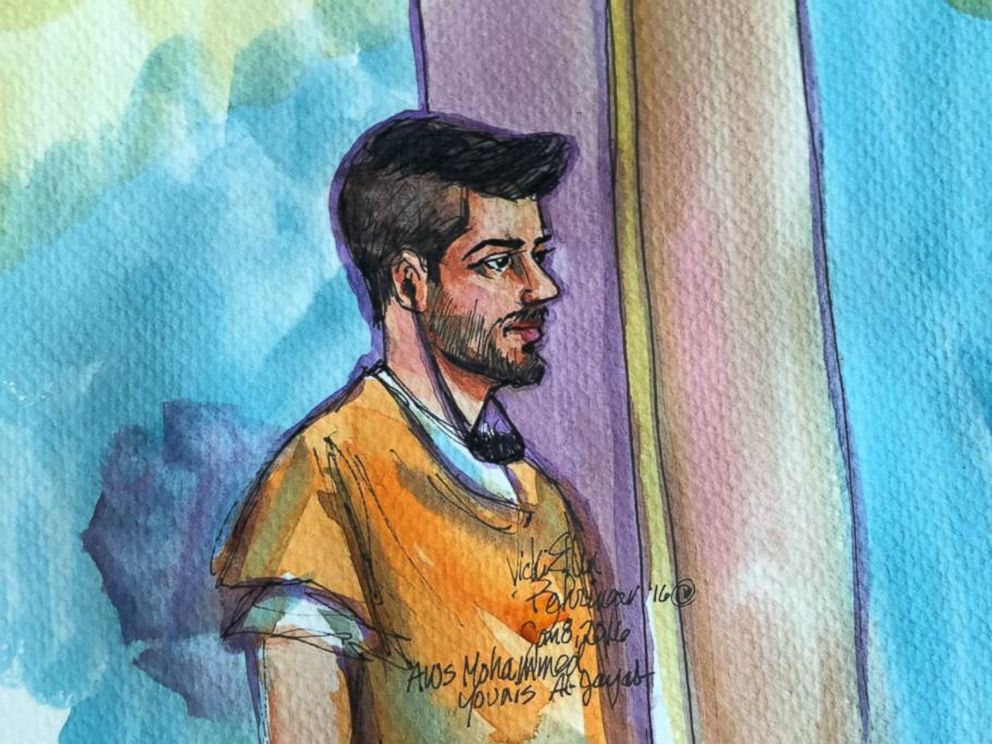2 Iraqi Refugees Make Court Appearances on Terror-Related Charges
First man appeared in a Texas court, the other one appeared in California.
— -- Two Iraqi refugees who were arrested on terror related charges, made court appearances Friday in California and Texas.
Federal authorities in Texas unsealed a three-count indictment Thursday against Omar Faraj Saeed al-Hardan, 24, of Houston.
Al-Hardan, a Palestinian born in Iraq, came to the United States in 2009 as a refugee and has been living here as a legal permanent resident since 2011, the indictment says. Al-Hardan was attempting to become a naturalized citizen but allegedly lied about his ties to members and sympathizers of ISIS.
He also allegedly lied about receiving weapons training on an automatic machine gun.
Al-Hardan is charged with material support of ISIS, unlawful procurement of citizenship and making false statements.
He did not enter a plea this morning in Houston Federal Court.
Through an attorney, Al-Hardan told the judge he is married and has one child. He has a high school education and earns about $1,800 a month, he told the judge.
Al-Hardan's next court appearance will be a bond hearing Wednesday.
Texas Lt. Gov. Dan Patrick said earlier that the arrest may have "prevented a catastrophic terror-related event in the making and saved countless lives."
“This is exactly what we have repeatedly told the Obama administration could happen and why we do not want refugees coming to Texas," Patrick said. "There are serious questions about who these people really are, as evidenced by today's events."
Meanwhile, Sacramento resident Aws Mohammed Younis al-Jayab, 23, was arrested on charges of making a false statement involving international terrorism, the Department of Justice said Thursday.

Al-Jayab was born in Iraq and came to the U.S. from Syria in 2012 as a refugee, according to a criminal complaint unsealed in Sacramento. By October of that year, he allegedly expressed a desire to return to Syria to support violent jihad.
He then traveled to Syria to fight with terrorist organizations in the area, authorities allege.
There is no indication that he planned an act of terrorism in the United States and there was no threat to public safety, officials say.
If convicted, he faces eight years in prison and a $250,000 fine.
One of his attorneys said there is nothing to suggest Al-Jayab is planning to commit any act of terrorism or to harm anyone in the U.S. The attorney added that Al-Jayab's activities overseas were 2 years ago.
The judge, however, said the Sacramento resident was a danger and flight risk.
His next court appearance was set for January 22.
While neither refugee was charged with plotting an attack inside the U.S., officials say they are deeply concerned about their association with ISIS. Since December, at least five U.S. suspects have been accused of ties to ISIS, including a Maryland man who was allegedly given more than $8,000 from an overseas operative for a U.S.-based attack. Senior administration officials, including FBI Director James Comey, met with tech leaders in Silicon Valley today to discuss encryption and ISIS' use of social media.
In the wake of the arrests, House Republicans are calling on the Senate to take up their bill “pausing” the resettlement of Syrian and Iraqi refugees.
“How many ticking time bombs are we going to bring in through this refugee program without a proper vetting system in place?” asked House Homeland Security Committee Chairman Michael McCaul, R-Texas. “We’re just asking for what the American people want.” ABC News' Benjamin Siegel contributed to this report.

